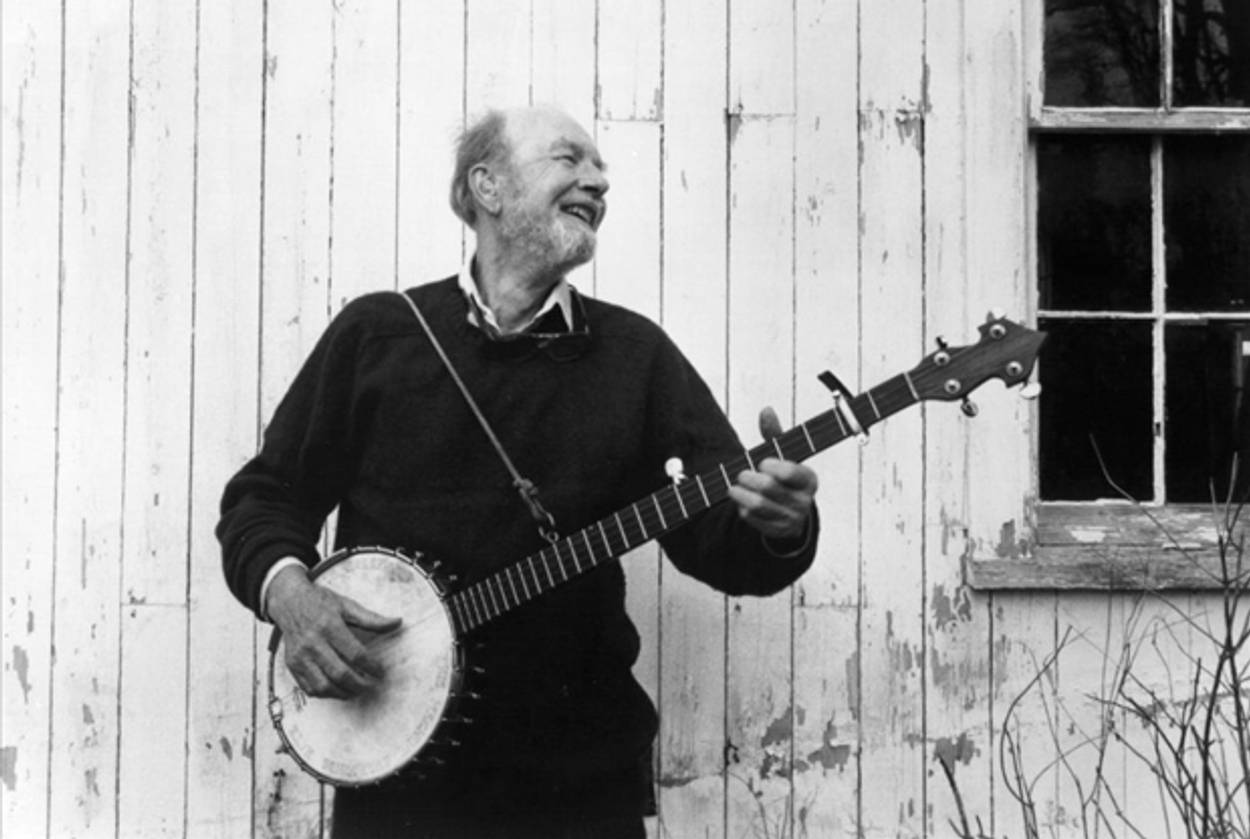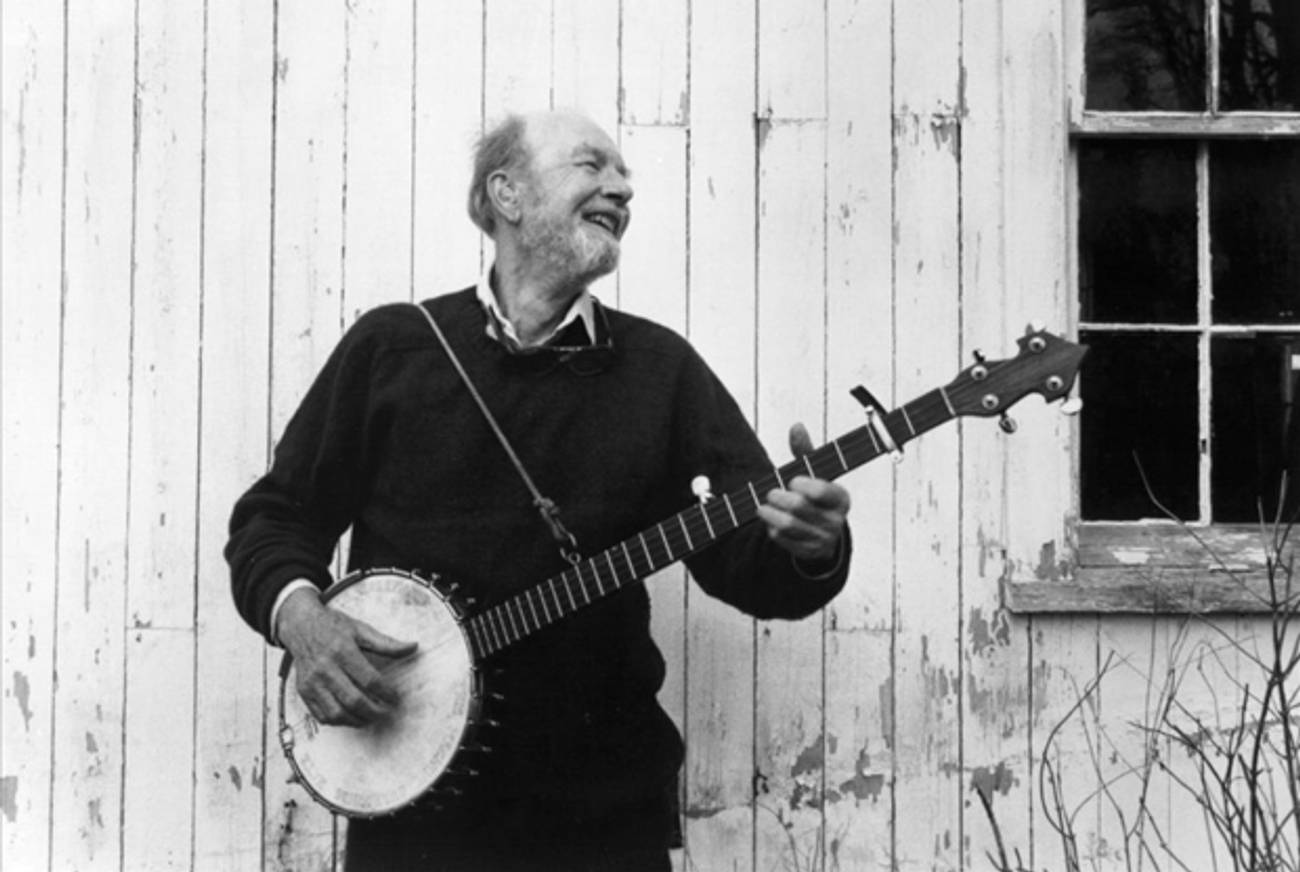When Pete Seeger Brought Bluegrass—and His Banjo—to Czechoslovakia in 1964
The late folk icon’s performance was the first ever to feature the instrument




Last weekend, in the Czech Republic, I took part in the launch of a new CD by Czech bluegrass band the Malina Brothers. I had helped with their English language singing in the recording studio last year, and on Sunday night, at a sold-out concert in the brothers’ home town of Nachod, in northern Bohemia, they brought me up on stage to toast the new release with sparkling wine.
The Czech Republic probably boasts more bluegrass bands and banjo players per capita than any other country, thanks significantly to folk icon Pete Seeger, who died Monday at 94. It was almost exactly 50 years ago that Seeger performed a series of concerts in the then-communist Czechoslovakia in March 1964. For the first time, people saw a five-string banjo being played, an instrument whose distinctive twang they’d heard while listening clandestinely to the American Forces radio broadcast from across the Iron Curtain. Seeger’s performance electrified music fans, who ended up launching a Czech bluegrass scene. (The first Czech five-strings were made from photos of Seeger’s; today, Czech banjo-makers export their instruments worldwide.)
Seeger’s 1964 tour was booked by the official Czechoslovak concert agency. Pete’s longtime friend Gene Deitch, a Chicago-born, Academy Award-winning animator and illustrator who has lived in Prague since the 1950s, organized the Prague concert. Deitch, now 89, also recorded it and it was later issued as a CD.
Seeger, Deitch recalled in the CD notes, was—as far as the Czech authorities were concerned—”an example of a ‘progressive’ American performer, singing for the rights of the ‘oppressed American masses,’” and “all those living in the darkness of [the] ‘imperialist’ American society.”
Deitch has posted the entire recording on his web site—among the songs Seeger performed that night was the Israeli folk song “Tzena Tzena,” which he sang in Hebrew.
Seeger’s influence in the Czech music scene stretches well beyond bluegrass. The Malina Brothers CD launch was my second in the country in recent weeks. In December, I helped pop the bubbly in Prague for the launch of a CD of Ladino tunes called “Songs from the Sephardic Tradition” by the new band Kon Sira, another project with which Lubos Malina, the award-winning banjoist of the Malina Brothers, is involved.
Malina, who turned 55 the day Pete Seeger died, was only a boy when Seeger played Prague in 1964, but he first heard bluegrass and banjo music from the generation of Czech musicians that Seeger had directly influenced. In a way, this makes the Kon Sira Sephardic project, too, a direct legacy of Pete’s performance half a century ago.
Related: Hear Israel
Previous: Folk Music Icon Pete Seeger Dies at 94
Ruth Ellen Gruber writes frequently about Jewish cultural and heritage issues and coordinates the web site Jewish Heritage Europe. Her Twitter feed is @ruthellengruber.